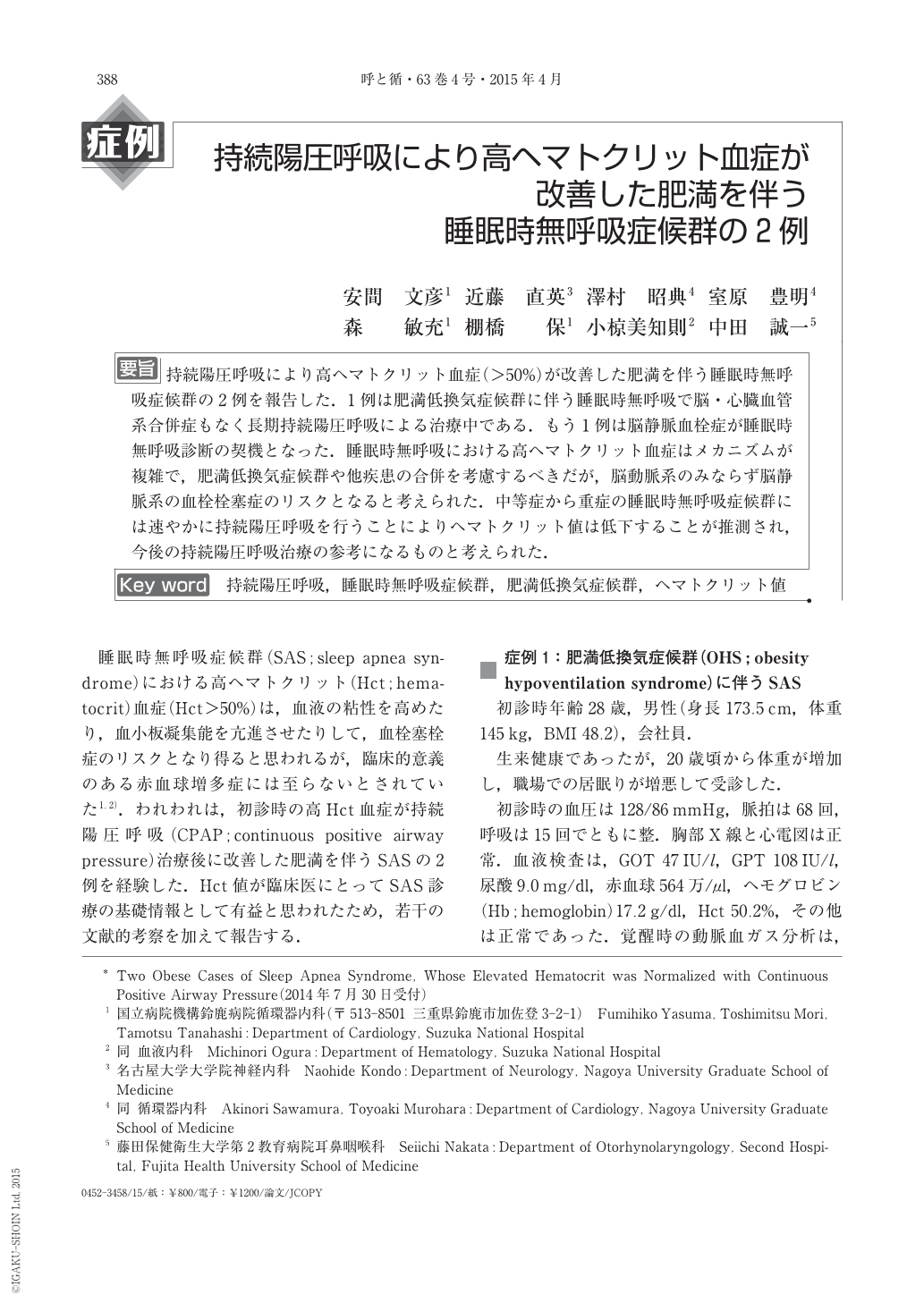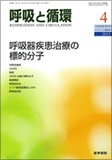Japanese
English
- 有料閲覧
- Abstract 文献概要
- 1ページ目 Look Inside
- 参考文献 Reference
要旨 持続陽圧呼吸により高ヘマトクリット血症(>50%)が改善した肥満を伴う睡眠時無呼吸症候群の2例を報告した.1例は肥満低換気症候群に伴う睡眠時無呼吸で脳・心臓血管系合併症もなく長期持続陽圧呼吸による治療中である.もう1例は脳静脈血栓症が睡眠時無呼吸診断の契機となった.睡眠時無呼吸における高ヘマトクリット血症はメカニズムが複雑で,肥満低換気症候群や他疾患の合併を考慮するべきだが,脳動脈系のみならず脳静脈系の血栓栓塞症のリスクとなると考えられた.中等症から重症の睡眠時無呼吸症候群には速やかに持続陽圧呼吸を行うことによりヘマトクリット値は低下することが推測され,今後の持続陽圧呼吸治療の参考になるものと考えられた.
We presented two obese male patients with sleep apnea syndrome, whose elevated hematocrit was normalized with continuous positive airway pressure. The first case was 28 years of age with the BMI of 48.2, who was diagnosed as sleep apnea syndrome associated with obesity hypoventilation syndrome. The patient had been treated successfully with positive airway pressure for the past 11 years thereafter without cardiovascular morbidity. The second case was 44 years of age with the BMI of 31.5, who was transferred for the transient loss of consciousness and convulsion. The patient was diagnosed as cerebral venous thrombosis with sleep apnea, which was treated successfully with positive airway pressure subsequently. In both cases, the initially elevated hematocrit(>50%)was normalized with continuous positive airway pressure. The increase in hematocrit in sleep apnea syndrome, the mechanisms of which might be complicated, could be a risk not only for the arterial but also venous thromboembolism in apnea patients, and it should be mentioned among the practitioners.

Copyright © 2015, Igaku-Shoin Ltd. All rights reserved.


